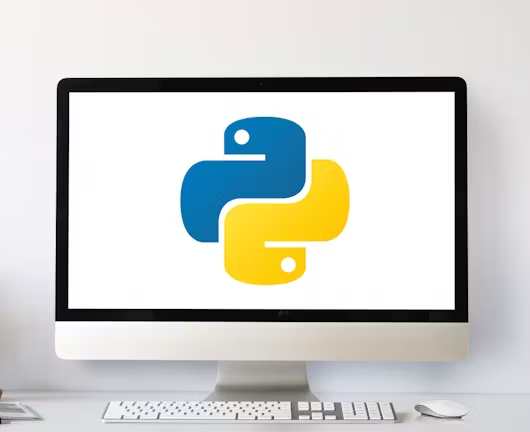- (+1866-648-7284 )
- hello@ohiocomputeracademy.com
Mastering ETL and Data Integration Techniques Using Python
Certification
Prerequiste
FAQs
Course Overview
Welcome to “Mastering ETL and Data Integration Techniques Using Python,” a practical training course designed for aspiring data professionals who seek to master the essential skills required to build efficient ETL (Extract, Transform, Load) solutions using Python. In today’s data-driven world, the ability to manage and integrate large volumes of data effectively is crucial for organizations aiming to make informed decisions.
This course provides a comprehensive exploration of the ETL process and data integration principles, utilizing Python as the primary programming language. Participants will learn how to extract data from various sources, transform it to meet business needs, and load it into target databases, ensuring seamless data flow and accessibility.
This course is ideal for data analysts, data engineers, business intelligence professionals, and IT specialists who want to enhance their skills in ETL processes and data integration using Python. Whether you are looking to advance your current career or pivot into data engineering, this course will provide you with the practical skills you need to succeed.
Join us for this engaging course and take your first step toward mastering ETL and data integration using Python, equipping yourself with the essential tools to drive data-driven decision-making in your organization!
Launch your career in ETL development using Python by developing in-demand skills and become job-ready in 30 hours or less.
Highlights
Upgrade your career with top notch training
- Enhance Your Skills: Gain invaluable training that prepares you for success.
- Instructor-Led Training: Engage in interactive sessions that include hands-on exercises for practical experience.
- Flexible Online Format: Participate in the course from the comfort of your home or office.
- Accessible Learning Platform: Access course content on any device through our Learning Management System (LMS).
- Flexible Schedule: Enjoy a schedule that accommodates your personal and professional commitments.
- Job Assistance: Benefit from comprehensive support, including resume preparation and mock interviews to help you secure a position in the industry.
Outcomes
By the end of this course, participants will be equipped with:
- Comprehensive Understanding of ETL Processes: Participants will understand the concepts and significance of ETL (Extract, Transform, Load) in data management and integration.
- Proficiency in Python for ETL: Learners will develop strong programming skills in Python, specifically for implementing ETL processes using libraries like Pandas, NumPy, and others.
- Data Extraction Techniques: Participants will become adept at extracting data from various sources, including databases, CSV files, and cloud services.
- Data Transformation Skills: Participants will gain expertise in data transformation techniques, including cleaning, normalizing, and aggregating data, using Python and relevant libraries.
- Data Loading Mechanisms: Learners will learn to load data into target systems such as relational databases or data lakes, ensuring that data is properly formatted and integrated.
- Utilization of Popular ETL Frameworks: Familiarity with popular ETL frameworks and tools in Python, such as Apache Airflow or Luigi, for creating and managing data pipelines.
- Error Handling and Logging: Understand best practices for error handling and logging within ETL processes to ensure robust data processing workflows.
- Implementation of Data Integration Solutions: Build comprehensive data integration solutions that encompass the entire ETL lifecycle, demonstrating the ability to manage large volumes of data efficiently.
- Real-World Application Skills: Engage in hands-on projects and exercises that simulate real-world data integration scenarios, resulting in practical experience that reinforces learning.
- Collaboration and Version Control: Learn how to use version control systems (such as Git) to manage code changes and collaborate effectively with team members on data projects.
- Preparation for Advanced Roles: Equip participants with essential skills needed for advanced roles in data engineering, analytics, and business intelligence.
Key Learnings
- Grasp the fundamental concepts of ETL (Extract, Transform, Load) and its critical role in data integration and analytics.
- Develop strong Python programming skills, with a focus on libraries commonly used in data handling, such as Pandas and NumPy.
- Learn to extract data from diverse sources, including databases, APIs, flat files, and cloud services, using Python capabilities.
- Master data transformation techniques, including cleaning, reshaping, and aggregating data to ensure it is ready for analysis.
- Acquire skills to load and integrate transformed data into various target systems, such as databases or data lakes, utilizing Python.
- Familiarize yourself with tools and frameworks for managing ETL workflows, including concepts like task scheduling and monitoring.
- Implement best practices for error handling and logging within ETL processes to ensure robust and efficient data workflows.
- Gain practical experience through hands-on exercises and projects that simulate real-world ETL scenarios, reinforcing the skills learned.
- Understand the importance of data governance, quality assurance, and compliance in the context of ETL processes.
- Learn how to utilize version control systems (such as Git) to manage code changes and collaborate effectively with team members on data projects.
- Explore advanced data integration solutions and technologies that can complement Python ETL processes.
- Equip yourself with the foundational skills needed for advanced roles in data engineering and analytics, making you a competitive candidate in the job market.
Pre-requisites
- Participants should have a basic understanding of Python programming. Familiarity with key Python concepts like variables, data types, control structures (if statements, loops), and functions is recommended.
- A foundational understanding of SQL (Structured Query Language) can be beneficial, especially for querying relational databases. Basic commands like SELECT, INSERT, and UPDATE will be useful.
Job roles and career paths
This training will equip you for the following job roles and career paths:
- Data Engineer
- ETL Developer
- Data Analyst
- BI Developer
- Data Integration Developer
- Data Warehouse Architect
Mastering ETL and Data Integration Techniques Using Python
The demand for the course “Mastering ETL and Data Integration Techniques Using Python” is strong, driven by the increasing reliance of organizations on data-driven decision-making. As businesses generate vast amounts of data from various sources, the ability to effectively extract, transform, and load (ETL) this data has become essential for operational efficiency and strategic insight.
Given the growing popularity of Python as a powerful tool for data manipulation and analysis, professionals skilled in building ETL solutions with Python are increasingly sought after in the job market. The rise of data engineering as a crucial discipline further enhances the need for training programs that focus on practical applications of ETL techniques.
As organizations continue to prioritize effective data management in a competitive landscape, the skills acquired through this course represent a valuable investment in advancing one’s career in the data analytics field.
Curriculum
- 9 Sections
- 21 Lessons
- 32 Hours
Expand all sectionsCollapse all sections
- Module 1: Introduction to ETL and Data AnalysisExercise: Discuss the significance of ETL processes in data analysis and explore use cases.3
- Module 2: Setting Up Your EnvironmentExercise: Set up your Python environment and create a ‘Hello, World!’ script.2
- Module 3: Connecting to Data SourcesExercise: Write a Python script to connect to a sample database and extract data.2
- Module 4: Data Extraction TechniquesExercise: Extract data from multiple sources and store it in Python data structures such as DataFrames.2
- Module 5: Data Transformation with PandasExercise: Use Pandas to clean and prepare a dataset for analysis.3
- Module 6: Loading Data into Target SystemsExercise: Write a Python script to load transformed data into a SQL database.2
- Module 7: Error Handling and LoggingExercise: Add error handling and logging to an ETL script to manage exceptions.2
- Module 8: Automating ETL ProcessesExercise: Create a simple Python script that can be scheduled to run at regular intervals.2
- Module 9: Performance Optimization StrategiesExercise: Analyze and optimize an existing ETL process for better performance.3
ETL stands for Extract, Transform, Load. It is a data integration process that involves three key steps: Extract: extract data from various source systems, Transform: Once the data is extracted, it undergoes a series of transformations to clean and prepare it for analysis.
Load: After the data is transformed, it is loaded into a target system or database
ETL processes are crucial in data warehousing and analytics as they ensure that the right data is available in the right format for timely business decision-making.
This course is designed for data analysts, data engineers, business intelligence professionals, and IT specialists who wish to develop skills in ETL processes and data integration using Python.
While prior experience with Python is beneficial, it is not mandatory. A basic understanding of programming concepts is recommended. No prior experience with ETL processes is required, but familiarity with data concepts is helpful.
The course covers a wide range of topics, including data extraction techniques, data transformation using Python libraries, connecting to various data sources, and implementing ETL workflows.
The course is designed to be completed in approximately 32 hours, which includes 16 hours of instructor-led training and 16 hours of student practice.
Yes, participants will receive a certificate of completion, which can enhance your resume and showcase your proficiency in ETL processes and Python.
Absolutely! The course includes numerous hands-on exercises and real-world projects designed to reinforce learning and provide practical experience.
It's recommended to familiarize yourself with basic programming concepts and data manipulation techniques, as well as review some introductory materials on Python. We may provide optional resources for self-study prior to the course start.
Yes, participants will have access to course materials and resources for continued learning after the course is completed.
Participants will have access to instructor support throughout the course, along with resources to facilitate learning, including assignments, and exercises.
To enroll in this course, please email us at enroll@ohiocomputeracademy.com.
Yes, discounts may be available for group registrations. Please contact us at enroll@ohiocomputeracademy.com for more details on group pricing options.
$1,199
Course Summary
Duration: 32 hours
Level: Expert
Training Mode: Live Online | Instructor-Led | Hands-On
Share This Course
Highlights
- Instructor-led training
- One-on-One
- Free access to future sessions (subject to schedule & availability)
- Job Assistance
- Interview preparation
- Online access provided through the LMS
Pricing
$1,199
Group Training (minimum 5 candidates):
$719
Individual Coaching:
$1,199
Corporate Training
- Customized Learning
- Enterprise Grade Reporting
- 24x7 Support
- Workscale Upskilling






